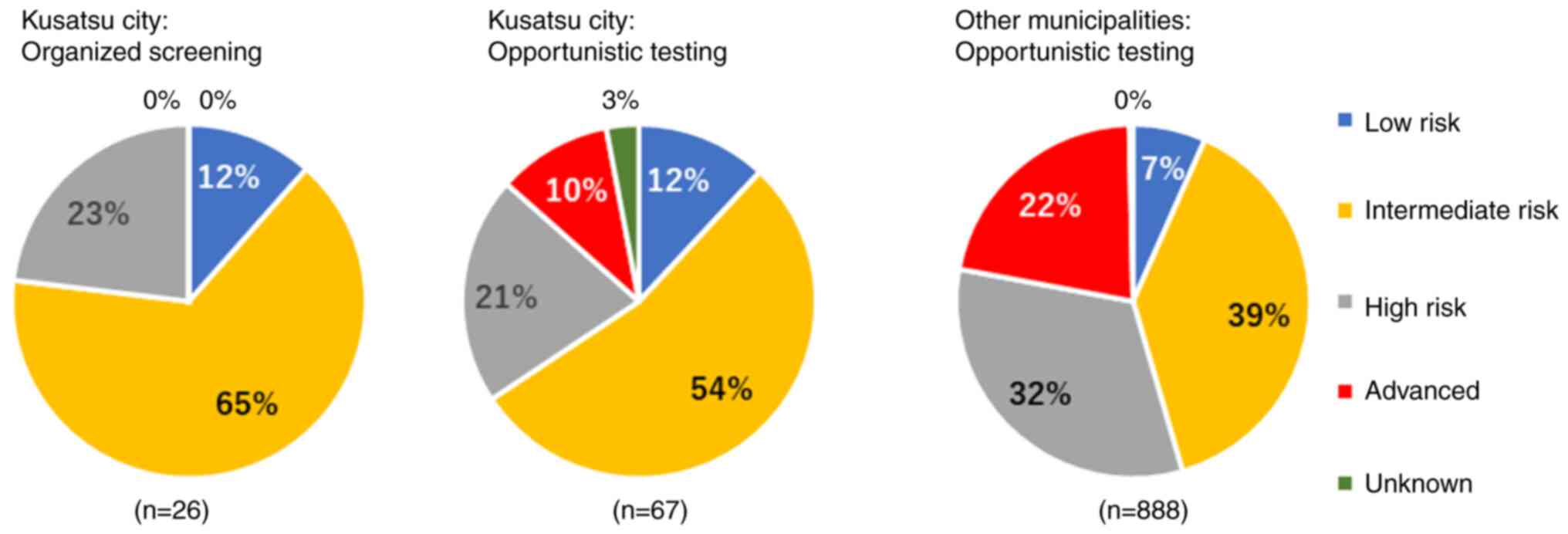Spandidos Publications style
Kageyama S, Okinaka Y, Nishizawa K, Yoshida T, Ishitoya S, Shichiri Y, Kim CJ, Iwata T, Yokokawa R, Arai Y, Arai Y, et al: Population‑based prostate‑specific antigen screening for prostate cancer may have an indirect effect on early detection through opportunistic testing in Kusatsu City, Shiga, Japan. Mol Clin Oncol 18: 3, 2023.
APA
Kageyama, S., Okinaka, Y., Nishizawa, K., Yoshida, T., Ishitoya, S., Shichiri, Y. ... Kawauchi, A. (2023). Population‑based prostate‑specific antigen screening for prostate cancer may have an indirect effect on early detection through opportunistic testing in Kusatsu City, Shiga, Japan. Molecular and Clinical Oncology, 18, 3. https://doi.org/10.3892/mco.2022.2599
MLA
Kageyama, S., Okinaka, Y., Nishizawa, K., Yoshida, T., Ishitoya, S., Shichiri, Y., Kim, C. J., Iwata, T., Yokokawa, R., Arai, Y., Nishikawa, Z., Soga, H., Ushida, H., Sakano, Y., Naya, Y., Wada, A., Nagasawa, M., Yoshida, T., Narita, M., Kawauchi, A."Population‑based prostate‑specific antigen screening for prostate cancer may have an indirect effect on early detection through opportunistic testing in Kusatsu City, Shiga, Japan". Molecular and Clinical Oncology 18.1 (2023): 3.
Chicago
Kageyama, S., Okinaka, Y., Nishizawa, K., Yoshida, T., Ishitoya, S., Shichiri, Y., Kim, C. J., Iwata, T., Yokokawa, R., Arai, Y., Nishikawa, Z., Soga, H., Ushida, H., Sakano, Y., Naya, Y., Wada, A., Nagasawa, M., Yoshida, T., Narita, M., Kawauchi, A."Population‑based prostate‑specific antigen screening for prostate cancer may have an indirect effect on early detection through opportunistic testing in Kusatsu City, Shiga, Japan". Molecular and Clinical Oncology 18, no. 1 (2023): 3. https://doi.org/10.3892/mco.2022.2599















